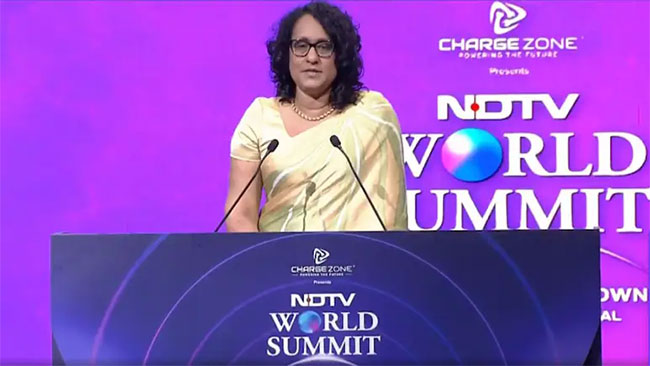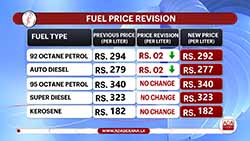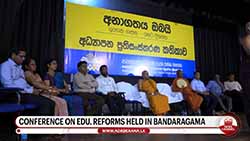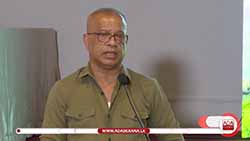India’s neighbourhood first policy helping all: Sri Lanka PM At NDTV World Summit
October 17, 2025 08:52 pm
Sri Lankan Prime Minister Harini Amarasuriya said today that India’s neighbourhood first policy is helping all the neighbouring countries. “India’s rise, coupled with its inclusive approach, provides an anchor of stability. For Sri Lanka, this partnership embodies a shared belief that we achieve more and rise stronger when we rise together,” she said.
Delivering the keynote address at the NDTV World Summit on “Steering change in uncertain times”, she also thanked India for its support during the economic crisis in 2022.
India, she said, “redefined leadership” during the crisis. “This support is a lasting reminder that India’s help at our hour of need is remembered and deeply valued by our people,” she said.
As part of its “Neighbourhood First” policy during the 2022 economic crisis in Sri Lanka, New Delhi had extended a Line of Credit of $500 million in February that year for purchase of petroleum products from India. The next month, $1 billion Credit Facility was extended for supply of essential items including food items, medicines and fuel.
The government had said that India is confident about the “strength and enduring nature of its bilateral ties with Sri Lanka which is deep-rooted and multi-dimensional”.
Student Days In India
Amarasuriya, who had studied in India in the 1990s, said, “Standing here in Delhi, feels like coming a full circle”.
“In 1991, I was a student here at Hindu College navigating a period of flux. It was a period of change. Returning now, I have seen India transform. It’s a vibrant country of 1.4 billion,” said Amarasuriya, who was appointed Prime Minister last year and is the third woman in the neighbouring country to hold the post.
Giving Direction To Sri Lanka
Amarasuriya - who is on her maiden visit to India and had a bilateral meeting with Prime Minister Narendra Modi earlier today -- said the “past few years have been a lesson in both fragility and fortitude,” refering to the severe economic and political crisis that followed the Covid pandemic.
“Economic instability, shortages and institutional challenges were compounded by political uncertainty testing the nation’s governance and social cohesion. Yet, the resilience and determination of the Sri Lankan people shone through,” she added.
While Sri Lanka’s political history is marked by persistent popular mobilization, the electoral processes have continued, she said. Today, “the presidential and parliamentary elections achieved a clear mandate for a forward-looking Sri Lanka. We have restructured our debt and we are digitising the public structure,” she added, explaining the current situation in the country.
India-Sri Lanka Ties
Looking forward to the continuation of India-Sri Lanka ties, Amarasuriya said this can be extended on multiple frontiers including trade routes, with updation of the 37-year-old free trade agreement, regional cooperation, energy security including renewable energy development and strategically, the security in the Indian Ocean.
“It is very important that India-Sri Lanka relations, especially in trade and investment, must not be seen as a zero-sum game,” she said.
“Today, India is Sri Lanka’s largest trading partner, largest source of tourism and a leading investor,” she said, pointing to the “little-known fact” about Sri Lankan companies’ investment in India, especially in the apparel sector that provides employment to about 20,000 Indians, 18,000 of them rural women from Andhra Pradesh.
Sri Lanka, she said, seeks to develop a maritime hub for the Indian Ocean region, offering a cost-efficient gateway for global trade. “As a strategically located island nation, (20:24) Sri Lanka is well-positioned to complement neighboring countries’ trade and development ambitions. Enhanced trade routes and port infrastructure can drive economic benefits not only for Sri Lanka, but for the broader region as well,” she said.
Moreover, as India positions itself as a global manufacturing hub, Sri Lanka could serve a complementary production base, Amarasuriya said, particularly in sectors such as textiles, electronics, and food processing.
Taking of a big push in the tourism sector too, she said it offers “opportunities from hospitality to infrastructure to creating new and exciting experiences for visitors from around the world”.
Source: NDTV
--Agencies












